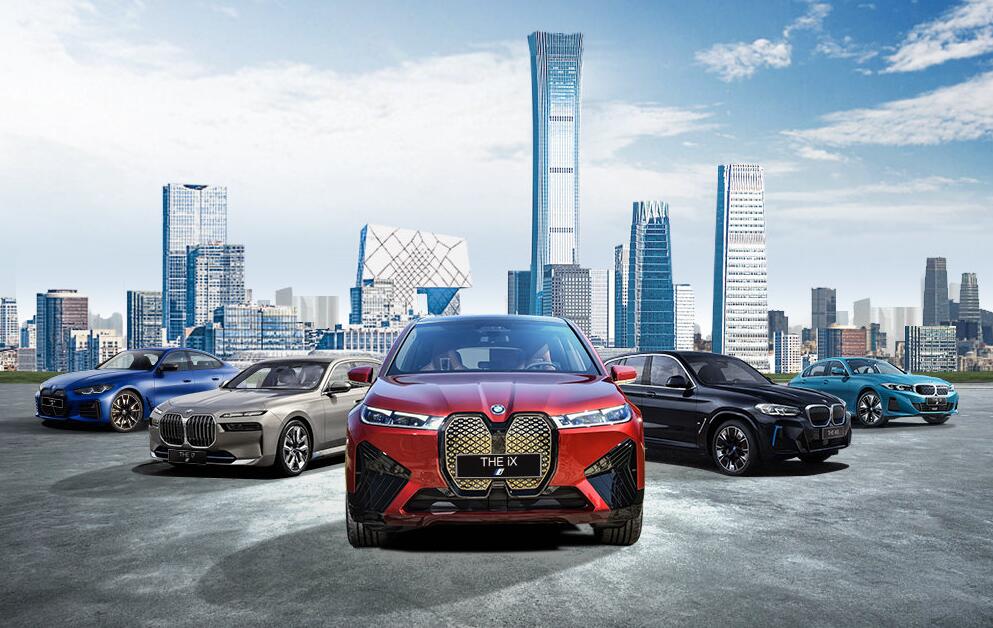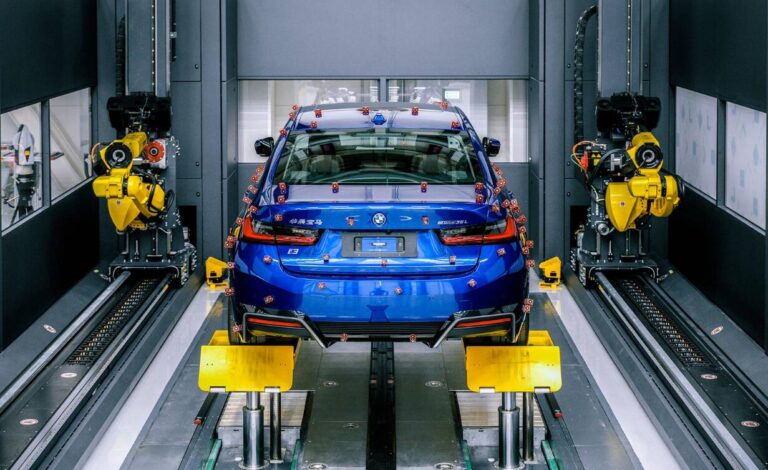BMW sold 75,891 EVs worldwide in the first half of the year, but its sales in China were not announced, providing only a growth rate.
(Image credit: BMW)
For car companies in China, it's become customary to announce monthly electric vehicle (EV) sales. But that's not the case for German luxury carmakers.
BMW said today that it delivered 378,727 BMW and MINI-branded vehicles in China in the first half of the year, with "sales of pure electric models continuing their strong momentum, up 74.6 percent year-on-year."
It's a rare mention by the German luxury carmaker of its EV-related numbers in China, though the most critical figure was not released: what were the EV deliveries in the first half of the year?
Given that BMW's EV deliveries in China in the first half of last year are unknown, it's impossible to know how many they delivered in the first half of this year based on the growth rate it mentions.
After several Weibo bloggers shared the figure, a large number of users left comments asking what the first-half deliveries were.
At a time when China's EV industry is growing rapidly, local car companies are transforming significantly faster than luxury brands as well as domestic-foreign joint venture brands.
In the first half of this year, wholesale sales of new energy passenger vehicles in China were 2.467 million units, up 122.9 percent year-on-year, according to data released earlier today by the China Passenger Car Association (CPCA).
China's penetration of NEVs in wholesale sales was 26.1 percent in June, up 10.8 percentage points from the 15.3 percent penetration rate in June 2021.
Among them, the penetration rate of NEVs for local brands was 45 percent and 27.5 percent for luxury brands, while mainstream joint venture brands were only 4.8 percent, according to the CPCA.
BYD is the market leader in China, selling 641,350 NEVs in the first half of the year. The company stopped production of traditional internal combustion engine vehicles in March to focus on pure electric vehicles and plug-in hybrids.
In the first half, Tesla delivered 197,575 vehicles in China, with Xpeng Motors at 68,983, Li Auto at 60,406 and Nio at 50,827, according to data monitored by CnEVPost.
The CPCA's monthly sales rankings of different brands and models provide a window into the dynamics of the EV industry in China, although BMW and its electric models have not made the list so far.
Still, the German luxury carmaker's efforts to transition to electrification are noteworthy.
Late last month, the Lydia plant, the third vehicle assembly plant at BMW's production site in Shenyang, Liaoning province in Northeast China, was officially opened, allowing for up to 100 percent EV production capacity.
BMW is presenting five all-electric models in China this year - the BMW iX3, BMW i3, BMW i4, BMW iX and BMW i7, it said in a press release today.
The BMW i7, which features the BMW Group's fifth-generation electric drive system, also features an advanced computing platform and intelligent equipment, making it the most powerful BMW 7 Series to date, it said.
BMW now has access to more than 430,000 public charging piles in China, including 230,000 DC charging piles, covering 300 cities, it said.
More and more users are using the digital service integrated into the My BMW App, which saw more than 41,000 public charging orders in the first six months of the year, up 273 percent year-on-year, BMW said.
In the global market, BMW delivered 1,160,443 BMW, MINI and Rolls-Royce-branded vehicles in the first half of the year. Of those, sales of pure electric vehicles rose 110.3 percent year-on-year to 75,891 units, according to the company.

